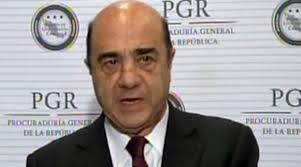Authorities in Mexico say none of the bodies found in the mass graves in Iguala belong to missing student protesters, another indication that such brutal atrocities — and the official corruption that facilitates such acts — are not isolated incidents in the turbulent state of Guerrero.
Mexico’s Prosecutor General, Jesus Murillo Karam, has announced that DNA analysis on the 28 bodies found in clandestine graves on October 4 showed the remains are not those of the students who went missing during a protest in Iguala, Guerrero on September 26, reported The New York Times.
Meanwhile, authorities arrested 14 police and the mayor in the nearby city of Cocula on October 14. According to Karam, most of the detainees then confessed they had handed over the students to the Guerreros Unidos, the criminal group believed to be responsible for the disappearances, reported Excelsior. In total, nearly 50 suspects have been arrested in the ongoing investigation, while Iguala’s mayor remains wanted by authorities for his suspected involvement in the case.
On the same day as the police arrests, one of the Guerreros Unidos’ alleged principal leaders, Benjamin Mondragon Pereda, alias “El Benjamon,” committed suicide. Mondragon shot himself in the head after he was surrounded by police, reported Milenio.
InSight Crime Analysis
The revelation that the bodies found in the mass graves do not belong to the student protesters deepens the mystery of a case that has drawn international media attention and has sparked widespread outrage in Mexico. While it may feed hopes that the students are still alive, it also raises the possibility that even more bodies have yet to be discovered.
Not all of the 10 clandestine graves found around Iguala thus far appear to have been created recently, indication that Guerrero has a problem with disappearances that extends far beyond the missing student protestors. Likewise, the arrest of the mayor and police in Cocula suggests that state corruption isn’t a dynamic limited to Iguala.
SEE ALSO: Mexico News and Profile
The police confrontation with the reported leader of Guerreros Unidos came amid mounting pressure on security forces and President Enrique Peña Nieto to resolve the case. Coming shortly after allegations of the military’s role in the Tlatlaya massacre that left 22 dead in June in central Mexico, Peña Nieto is now facing a security crisis that threatens to undermine his government and eclipse the news of recent captures of some of Mexico’s leading drug traffickers.

